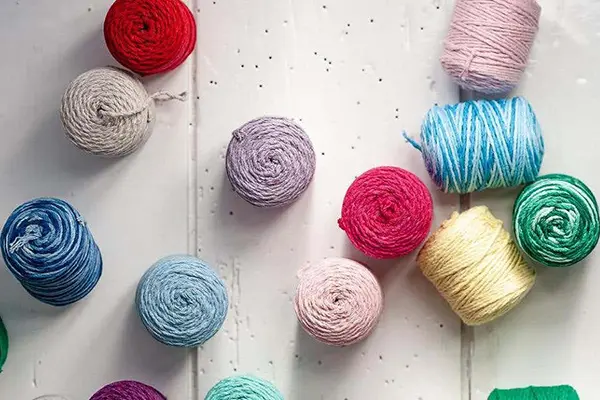Unraveling the Mystery: What Is Organic Yarn Made Of?
As the world becomes increasingly conscious of its impact on the environment, many crafters are turning to organic yarn, a sustainable alternative to conventional yarn. But what exactly is organic yarn made of? Let’s unravel the mystery and explore the fascinating world of organic fibers.
From Seed to Stitch: Organic Fibers Demystified
Organic yarn is crafted from natural fibers grown and processed according to strict organic standards. These standards prohibit the use of harmful chemicals like pesticides, herbicides, and synthetic fertilizers, ensuring the health of both the environment and the people who cultivate the fibers.
Here are the most common organic fibers used in yarn production:
- Organic cotton: Grown without harmful chemicals, organic cotton is incredibly soft, breathable, and absorbent. It’s a versatile fiber ideal for a wide range of projects, from cozy sweaters to delicate crochet lace.
- Organic wool: Obtained from sheep raised in humane conditions and free of synthetic treatments, organic wool is known for its warmth, durability, and natural elasticity. It’s a perfect choice for crafting warm winter garments and accessories.
- Organic hemp: A rapidly growing and sustainable crop, organic hemp fibers are strong, durable, and naturally resistant to mildew and pests. They add a unique texture and earthy aesthetic to yarn projects.
- Organic linen: Made from the flax plant, organic linen is a luxurious fiber known for its strength, luster, and beautiful drape. It’s ideal for crafting sophisticated garments and home décor items.
- Organic bamboo: This fast-growing, versatile plant produces silky-soft fibers with a natural sheen. Organic bamboo yarn is known for its breathability, moisture-wicking properties, and antibacterial qualities.
Beyond the Fibers: Processing Matters
The processing of organic fibers is just as important as the fibers themselves. Organic yarn producers follow strict protocols to ensure that the fibers are cleaned, dyed, and spun without the use of harmful chemicals. This process helps to protect the environment and the health of consumers.
Knitting a Greener Future with Organic Yarn
Choosing organic yarn isn’t just about crafting beautiful projects; it’s about making a conscious choice for the planet. By supporting organic fiber production, you’re helping to:
- Reduce pollution: Organic farming practices minimize water and air pollution, contributing to a cleaner environment.
- Protect biodiversity: Organic farming supports healthy ecosystems and promotes biodiversity.
- Improve soil health: Organic practices enhance soil fertility and reduce soil erosion.
- Promote fair trade: Organic certification often goes hand-in-hand with fair trade practices, ensuring fair wages and working conditions for farmers and textile workers.
Organic yarn isn’t just a trend; it’s a movement towards a more sustainable and ethical future for the textile industry. By choosing organic yarns, you can be a part of this exciting movement and create beautiful projects that are good for both you and the planet.
FAQs:
Q: Is organic yarn more expensive than conventional yarn?
A: Organic yarn can sometimes be slightly more expensive than conventional yarn, but the price difference often reflects the higher production costs associated with organic farming and processing. However, the environmental and social benefits of choosing organic yarn outweigh the price difference for many consumers.
Q: Where can I buy organic yarn?
A: Organic yarn is becoming increasingly available online and at local yarn stores. You can also find organic yarn at natural fiber stores and specialty craft shops.
Q: What are some other ways to support organic fiber production?
A: In addition to choosing organic yarn, you can support organic fiber production by:
- Learning more about organic farming and processing practices.
- Spreading awareness about the benefits of organic yarn to other crafters.
- Supporting organizations that promote organic agriculture and ethical textile production.
By taking these steps, we can all contribute to a more sustainable future for the textile industry and ensure that our crafting hobbies remain environmentally conscious and socially responsible.






